In spite of the occasional problems which come along, on balance you consider that you lead a contented life, and are fulfilled in your faith and in the small but supportive community of your local church which has been built up around it. Then one day, not so far away from your own church, another church is established: the church of a new denomination which calls itself Jesuanism. Now, from what you have heard about them, you strongly disagree with the Jesuanists’ doctrines, which when measured against your own beliefs, play fast and loose with such basic tenets of your faith as the resurrection, redemption, and the true purpose of Christ’s ministry – so much so that you put a question mark above whether or not you actually consider them to be Christians at all. They even have their own radically different version of the Bible. But it’s a live-and-let-live situation, and that’s what you do.
Things move on apace. More Jesuanist churches are built, and powerful lobby groups are established. Your own little church community is made to feel increasingly isolated, and the true Christian doctrine feels like it is being elbowed aside by what you view as the assertive arrogance of Jesuanist followers. But worse is to come. Those powerful Jesuanist lobbyists have their way.
One Sunday while you are attending the service in your church, a group of Jesuanists from the surrounding churches storm inside and herd your protesting congregation out into the street. You are forced to watch in horror as fanatical Jesuanists dump all the Bibles and hymnals from your church into a pile near the church steps, douse them with gasoline, and set them alight. While the thick smoke from those burning Bibles is still rising, a formal notice of seizure is taped to your church’s door: the building is now in the possession of Jesuanists, and will be used only for the purposes of predicating Jesuanist doctrine and worship.
The next step follows with the terrible logic of inevitability. One evening there is a loud knock on your door. In the yellow light of your porch, Jesuanist delegates strongly suggest that you convert to their faith and attend their services, and it is darkly hinted what might happen if you do not follow their advice. You have such a nice family, and it would be a shame if… etc.
The years pass. You have lived long enough to see the world change around you. Jesuanism, once simply a Christian denomination like any other (however extreme and radical you considered its views) has now become a powerful and entrenched institution recognized as the ‘official’ version of your faith. None of your own Christian churches now remain: they have all been annexed by the new forces of faith. And you struggle increasingly to remember your beloved passages from the Bible as your memory fades. For your memory is now all that you have: all known Bibles have long been destroyed, and you know now that what you do remember of its riches will die with you.
The above events are not nice, are they? Not nice at all. But every sad detail of this cruelly intolerant scenario has already happened, and every single circumstance as related above is a part of recorded history. All that has been necessary for me to write it is to give it a contemporary setting and to devise the fictitious name for the [1]‘Jesuanist’ denomination. For the rest, it is the terrible reality of what you would have experienced as a Christian Gnostic facing the rising force of the new Catholic church between the 2nd- and 4th-centuries. As with its subjugation of the [2]Cathars a millennium later, Catholicism did not emerge as the orthodox form of Christianity because it was ‘right’, but because it suppressed any potentially opposing beliefs with ruthless and systematic finality.
As for the thought that these circumstances are now made safely remote by so many centuries of intervening history: forget it. Right here in the 21st-century I have come across enough ‘good’ Christian websites that, when they mention them, vilify Gnostic beliefs with a ferocity that only an unquestioning indoctrination could fuel, and [3]disinformation about what these beliefs actually are is legion. In those early centuries, the Gnostics’ places of worship were indeed [4]annexed by the Church, and thousands of Gnostic texts were destroyed. The purge of these texts was so complete that for centuries any knowledge of their contents was only gleaned through negative references in the [5]writings of those opposed to them. The discovery in 1945 of the Gnostic Gospels buried in a jar in the Egyptian sands has at last given the Gnostics their own voice. It’s the least that history owes them.
Hawkwood Notes:
[1] Now that you have read this far, and know that I have been describing actual historical circumstances, you might try re-reading this post - this time substituting my fictitious term 'Jesuanists' (which has now served its purpose) for the term 'Catholics'. Two points are worth remembering: To the Gnostics, it was the form of Christianity which became known as Catholicism that was the distasteful heresy. And: in the earliest years of the new faith, there is reason enough to presume that Gnosticism was closer to the original form of the faith. There still is no 'right' version of Christianity - just versions which have circumstantially come to be viewed as 'orthodox', which is a historically relative term. Each version inevitably perceives itself as the 'right' one, but with 38,000 current versions (denominations) worldwide, are we seriously to consider that one of them is 'right', and the other 37,999 are 'wrong'?
[2] Please see my post A Dark Crusade
[3] In my King James Study Bible, published by Zondervan, the annotation accompanying the First Epistle General of John describes Gnosticism as "One of the most dangerous heresies of the first two centuries of the church..", which begs the question: dangerous.. to whom? This question is naturally-enough avoided, although the Zondervan editors are apparently eager enough to point out that the Gnostics' "...dualism also led to licentiousness." - an assertion as luridly propagandist as it is inaccurate and unscholarly. Rowan Williams, then Archbishop of Canterbury, actually described (in his April, 2006 Easter Sermon) Gnostic writings as belonging to "the more eccentric fringes of the early century Church." But again the begged question has to be: more eccentric to whom? At the time, all texts and versions of this early Christianity were on an equal footing with each other. There was no 'eccentric fringe' - but the Archbishop's words again demonstrate the thick layer of enduring prejudice against Gnostic beliefs by orthodox sources.
[4] Please see my post Anthony of the Desert: Life as Fiction
[5] Please see my post The Gospel According to Somebody
[2] Please see my post A Dark Crusade
[3] In my King James Study Bible, published by Zondervan, the annotation accompanying the First Epistle General of John describes Gnosticism as "One of the most dangerous heresies of the first two centuries of the church..", which begs the question: dangerous.. to whom? This question is naturally-enough avoided, although the Zondervan editors are apparently eager enough to point out that the Gnostics' "...dualism also led to licentiousness." - an assertion as luridly propagandist as it is inaccurate and unscholarly. Rowan Williams, then Archbishop of Canterbury, actually described (in his April, 2006 Easter Sermon) Gnostic writings as belonging to "the more eccentric fringes of the early century Church." But again the begged question has to be: more eccentric to whom? At the time, all texts and versions of this early Christianity were on an equal footing with each other. There was no 'eccentric fringe' - but the Archbishop's words again demonstrate the thick layer of enduring prejudice against Gnostic beliefs by orthodox sources.
[4] Please see my post Anthony of the Desert: Life as Fiction
[5] Please see my post The Gospel According to Somebody
Sources:
Top image: AllVoices. Second image: © Brion Hardink

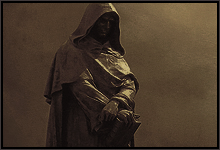
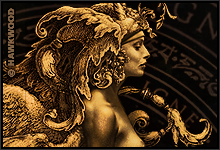
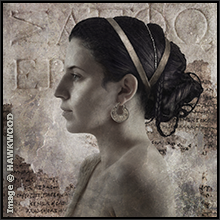
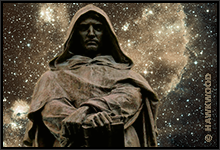
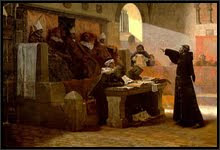

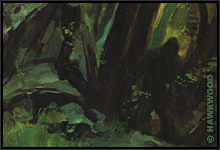
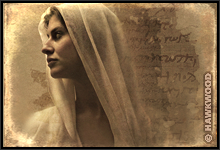

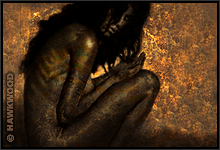
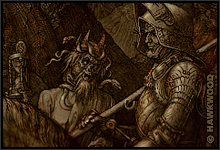
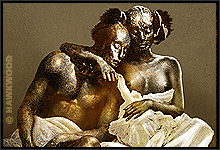

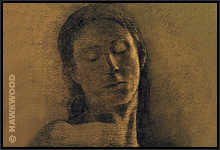
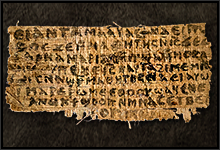














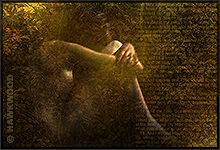
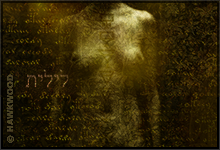
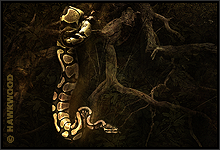
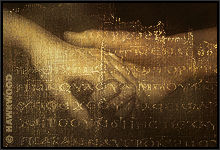
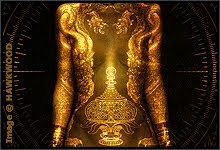
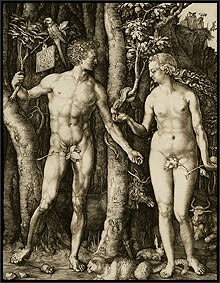
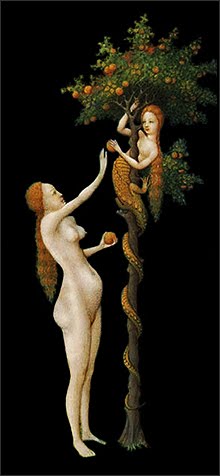
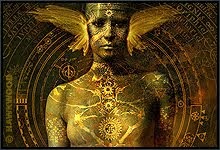
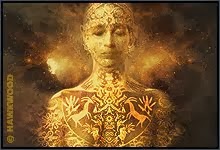


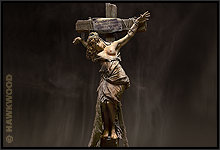
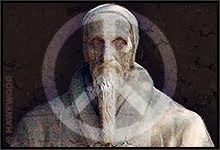
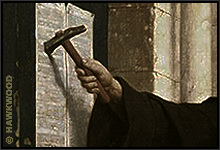


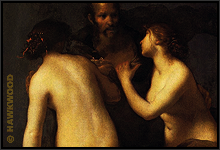

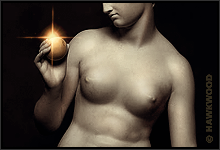

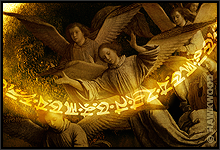

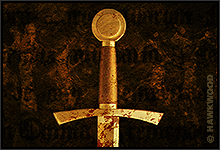
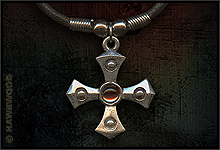
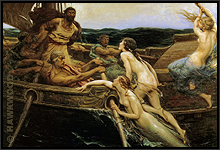

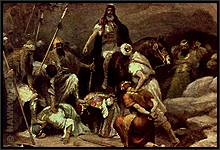
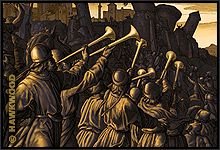
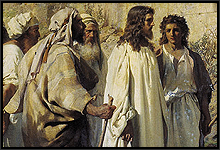
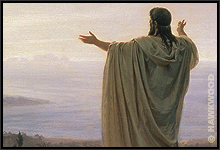
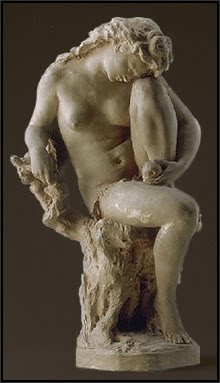
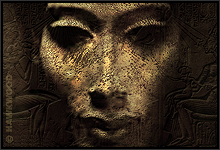


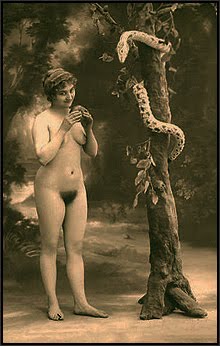
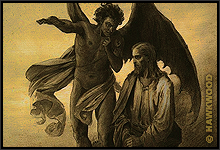
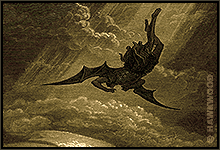



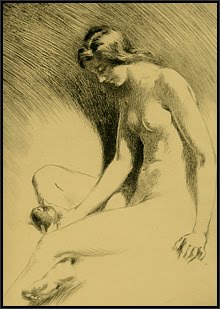
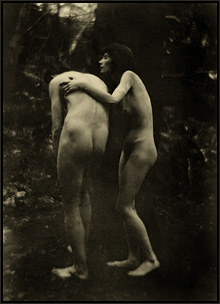
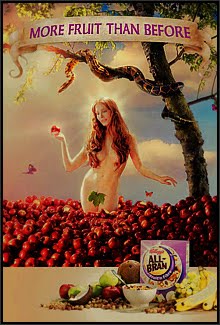

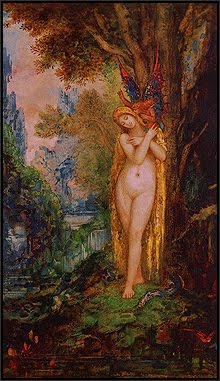

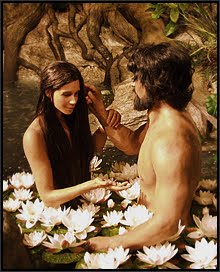
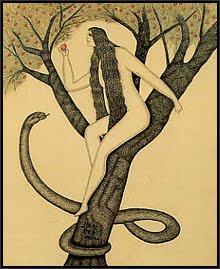


No comments:
Post a Comment
You are welcome to share your thoughts.